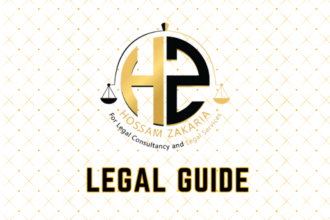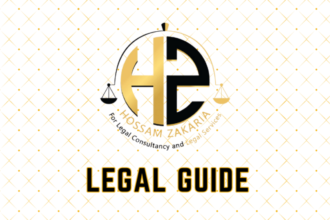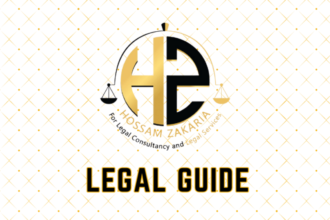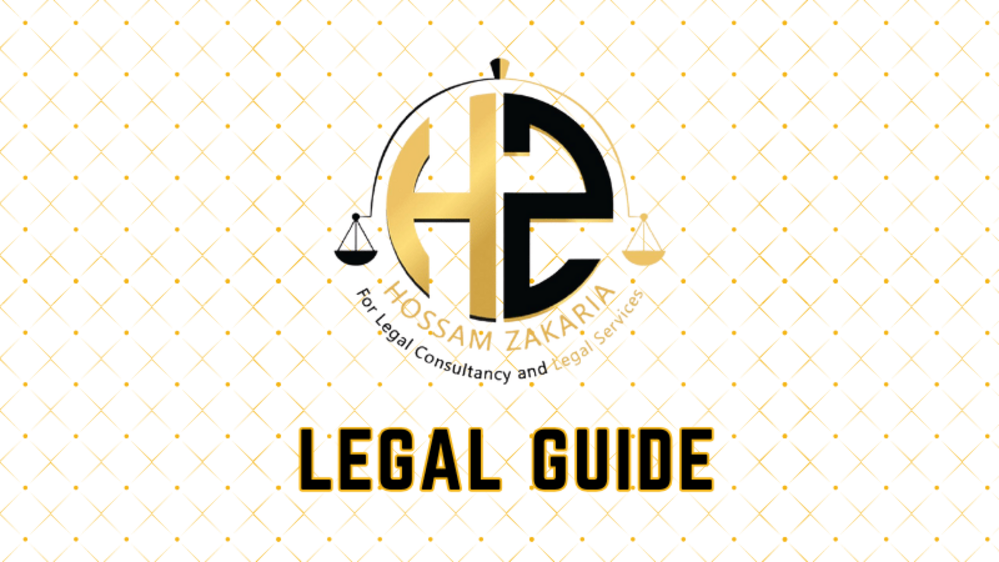Introduction: Navigating Responsible AI Legal Challenges Across Borders
The rapid adoption of Artificial Intelligence (AI) is transforming global business landscapes, including the Middle East. For UAE-based enterprises seeking to expand or operate in Qatar, understanding the burgeoning legal framework governing responsible AI ecosystems is imperative. This article delivers a detailed legal consultancy guide aimed at UAE businesses, executives, and legal professionals who need to comprehend the evolving regulatory landscape in Qatar—alongside relevant UAE legal updates—when engaging with or establishing AI-driven operations across borders. With responsible AI at the forefront of government policy ambitions and compliance requirements, this guide unpacks critical legal issues, consultancy insights, and actionable steps to remain protected, competitive, and future-ready.
The significance of this topic has heightened in 2024 and 2025 due to:
- Accelerated regulatory developments in AI in the UAE (notably Federal Decree-Law No. 44 of 2021 regarding Personal Data Protection and subsequent Cabinet Resolutions).
- Qatar’s National Artificial Intelligence Strategy and the introduction of sectoral guidelines by Qatari governmental bodies.
- Heightened cross-border compliance risks, data protection rules, and the expectations of regulators in both nations.
This expert guide ensures your business strategies—and compliance practices—are aligned with the growing demands of responsible AI development and deployment in the GCC.
Table of Contents
- Overview of the Regulatory Landscape: UAE-Qatar Responsible AI Frameworks
- Key Legal Requirements for AI Ecosystems in Qatar
- Cross-Border Compliance: Interplay Between UAE and Qatar Laws
- Risks of Non-Compliance and Enforcement Trends
- Practical Compliance Strategies for UAE Businesses
- Case Studies: Real-World Scenarios of Responsible AI Management
- Comparative Table: Old vs New Approaches in AI Regulation
- Visual Compliance Tools and Recommended Resources
- Conclusion: AI Legal Trends and Future Best Practices
Overview of the Regulatory Landscape: UAE-Qatar Responsible AI Frameworks
Responsible AI: The Regulatory Imperative for UAE and Qatar
Both the UAE and Qatar are positioning themselves as regional leaders in AI adoption and regulation. However, each jurisdiction takes a different approach regarding legal infrastructure, compliance priorities, and regulatory enforcement.
Qatar’s Approach
Qatar’s National AI Strategy, launched by the Ministry of Transport and Communications (MoTC, now the Ministry of Communications and Information Technology) in collaboration with the Qatar Computing Research Institute, outlines foundational principles for ethical AI deployment, digital safety, and innovation-led governance. While Qatar does not yet have a dedicated AI law, regulatory measures are incorporated into existing legal frameworks, including data protection (Law No. (13) of 2016), cybercrime, intellectual property, sectoral licensing, and national security regulations.
UAE’s Approach
The UAE leads the region with Federal Decree-Law No. 44 of 2021 on Personal Data Protection (PDPL), Federal Law No. 2 of 2019 on the Use of Information and Communication Technology (ICT) in Health Fields, and the National Strategy for Artificial Intelligence 2031. Cabinet Resolution No. 32 of 2023 further clarifies obligations for organisations deploying AI solutions, focusing on transparency, risk assessment, and accountability.
Cross-Jurisdictional Considerations
Crossover between both jurisdictions presents unique legal considerations for UAE businesses operating or partnering in Qatar. These include divergent data sovereignty requirements, consent standards, algorithmic accountability obligations, and sector-specific licensing.
Key Legal Requirements for AI Ecosystems in Qatar
1. Data Protection: Law No. (13) of 2016
Qatar’s data protection law is a critical compliance pillar for any AI initiative involving personal data. The law imposes strict obligations around data processing, cross-border transfers, consent, data minimisation, and notification of data breaches.
- Key Provisions: Consent mandate, data subject rights, mandatory registration for controllers, security measures for AI-generated data.
2. Sectoral Regulations and Licensing
AI applications in healthcare, banking, and telecommunications are regulated under distinct sectoral laws. For instance, the Qatar Central Bank Law and Qatar Financial Centre’s own compliance regime apply to AI-augmented fintech services.
3. Digital Ethics and Accountability
The Ethical Principles for AI, advanced by the Ministry of Communications and Information Technology, encourage AI system developers to prioritize fairness, explainability, and human oversight, although these are not yet codified as legal duties.
4. National Security and Critical Infrastructure
Certain AI deployments that affect critical infrastructure, communications, or national security may invoke special review and security clearance protocols from authorities such as the Qatar National Cyber Security Agency.
Consultancy Insight: Mitigating Legal Exposure
Best practices for UAE businesses include:
- Early legal risk assessment of all proposed AI deployments in Qatar.
- Mapping personal data flows and securing explicit, Qatari law-compliant consents.
- Appointment of an in-country Data Protection Officer and registering with Qatar authorities where required.
- Pre-clearance of AI solutions impacting critical infrastructure or high-risk sectors.
Cross-Border Compliance: Interplay Between UAE and Qatar Laws
Data Transfers and Extraterritorial Reach
One of the most significant legal hurdles is the transfer of data between the UAE (governed by the PDPL and sectoral laws) and Qatar (regulated by Law No. (13) of 2016). Both frameworks restrict international data transfers unless robust safeguards are in place, creating potential friction for cross-border AI projects.
| Legal Principle | UAE (PDPL 2021) | Qatar (Law No. 13/2016) |
|---|---|---|
| Breach Notification | Mandatory without undue delay to UAE Data Office | Must notify Ministry of Transport & Communications |
| Consent Requirements | Explicit, purpose-bound | Written, informed, revocable |
| International Transfers | Limits unless to approved jurisdictions/adequate safeguards | Limits unless approved by Ministry or with adequate protection |
AI Solution Provider Obligations
UAE businesses offering AI services in Qatar must clear dual compliance checkpoints:
- Meet local Qatari data protection, security, and sectoral regulations.
- Ensure outbound data flows from the UAE align with PDPL and Cabinet Resolutions.
Practical Example:
A UAE-based fintech launches an AI-supported analytics tool for a Qatari bank. The provider must ensure:
- Qatari customer data is not transferred out without written consent and adequate security safeguards.
- Both Qatari and UAE authorities are notified in the event of a major data breach.
Risks of Non-Compliance and Enforcement Trends
Regulatory Penalties by Jurisdiction
| Aspect | UAE (PDPL) | Qatar (Law 13/2016) |
|---|---|---|
| Fines | Variable, can exceed AED 500,000 (per Cabinet Res. No. 32/2023) | Up to QAR 1 million per breach |
| Reputational Impact | Regulator publicizes violations | Public reprimand and license suspension |
| Criminal Liability | Potential for imprisonment (serious violation: Art. 38 PDPL) | Possible criminal prosecution for egregious breaches |
| Remedial Orders | Mandatory system/policy overhaul | Regulator may mandate remedial actions |
Regulator focus has shifted from passive notification to active enforcement, including spot audits and unannounced compliance checks—especially in high-risk sectors (fintech, telecoms, healthtech, smart infrastructure).
Consultancy Perspective: Key Risk Triggers
- Unclear or inadequate AI system explainability.
- Improper or unverified end-user consent mechanisms.
- Failure to perform cross-border data transfer risk assessments.
- Neglecting to pre-clear high-risk AI deployments with national cybersecurity authorities.
UAE businesses must anticipate coordinated enforcement from authorities in both jurisdictions—especially where AI systems process or generate cross-border personal data.
Practical Compliance Strategies for UAE Businesses
Step 1: Legal Gap Audit and Impact Assessment
UAE entities must conduct holistic legal gap analyses when designing or introducing AI solutions in Qatar. This means benchmarking current UAE compliance processes against specific Qatari requirements, using checklists and dual-jurisdiction legal mapping tools.
| Action Item | UAE Law Reference | Qatar Law Reference |
|---|---|---|
| Consent Mechanisms | PDPL Art. 4 | Law No. 13/2016, Chap. 2 |
| AI Bias & Transparency Controls | Cabinet Res. 32/2023 | MoTC Ethical AI Guidelines |
| Data Localization & Residency | PDPL, Art. 22 | Law 13/2016, Art. 9; sectoral |
Step 2: Robust Governance and Documentation
- Maintain clear records of all compliance steps.
- Adopt AI Ethics and Risk Management policies that reflect both countries’ standards.
- Document user consent, risk assessments, and system explainability logs.
Step 3: Appointment of AI and Data Compliance Officers
UAE organizations should designate officers for ongoing monitoring of Qatar-relevant compliance issues, including cross-border obligations and regulatory change alerts.
Step 4: Training, Awareness, and Periodic Review
- Implement regular staff training on Qatar-specific AI, data protection, and digital ethics policies.
- Schedule periodic compliance and technical assessments to pre-empt enforcement risks.
Step 5: Pre-Deployment Approval for High-Risk Applications
- Pre-clear high-risk or sectoral AI applications with Qatari authorities (e.g., smart health, fintech).
- Follow local regulator guidance for post-deployment audits and continuous monitoring.
Case Studies: Real-World Scenarios of Responsible AI Management
Case Study 1: UAE Software Firm Launching AI Chatbot in Qatar’s Telecommunications Sector
Scenario: A leading UAE software vendor partners with a Qatari telecom operator to deploy a customer service AI chatbot.
- Legal Issues: System collects and processes customer data (names, locations, queries).
- Solutions: Consent forms are customized for Qatar’s requirements. Data storage is localized. Regular algorithm bias assessments are conducted and documented for regulator review.
- Outcome: The solution passes compliance audit, sets a best-practice benchmark.
Case Study 2: Cross-Border Data Analytics for Healthcare AI
Scenario: A UAE healthtech company delivers remote diagnostics to Qatari hospitals using AI.
- Legal Issues: Sensitive health data export restrictions and dual notification requirements in case of breach.
- Solutions: Explicit written patient consent, data pseudo-anonymization, and joint legal review by UAE and Qatari teams are implemented.
- Outcome: Ongoing collaboration with each data protection regulator ensures smooth operations and trust.
Comparative Table: Old vs New Approaches in AI Regulation
| Aspect | Previous Approach (Pre-2020) | Current Approach (2024-2025) |
|---|---|---|
| AI Regulation | Sectoral, fragmented, minimal national oversight | Holistic, principle-based, national strategies & regulator involvement |
| Data Protection | Loose guidelines, light enforcement | Specific laws, strict extraterritorial requirements, active audits |
| Algorithmic Bias/Ethics | No formal guidance | Mandatory explainability, AI ethics codes (Qatar MoTC, UAE AI Strategy 2031) |
| Breach Penalties | Low, rarely imposed | High, frequent, publicized, risk of criminal liability |
Visual Compliance Tools and Recommended Resources
Suggested Visual: Responsible AI Compliance Checklist for UAE Businesses in Qatar
- Data consent templates localized for each jurisdiction
- Cross-border transfer risk assessment flowchart
- AI system explainability & documentation matrix
- Sector-specific regulatory approval deadlines & contacts
Recommended Resources:
- UAE Ministry of Justice: moj.gov.ae
- UAE Government Portal on AI: u.ae
- Qatar Ministry of Communications and Information Technology: mcit.gov.qa
- Federal Legal Gazette: moj.gov.ae/en/law.aspx
Conclusion: AI Legal Trends and Future Best Practices
The legal trajectory for responsible AI ecosystems in Qatar and the UAE will continue to be defined by increasing regulator vigilance, growing stakeholder expectations, and rapidly evolving statutory requirements. For UAE businesses, the core challenges—and opportunities—centre on proactively aligning AI strategies with rigorous cross-border legal and ethical standards. The most successful organizations will:
- Embed compliance-by-design into all AI solutions deployed in Qatar or the wider GCC.
- Continuously track statutory and regulatory updates in both the UAE and Qatar, with a focus on emerging Cabinet Resolutions and sectoral guidance.
- Implement transparent, auditable, and ethics-based AI governance practices adapted to the most stringent applicable standard.
- Pursue ongoing dialogue with local regulators, sectoral agencies, and reputable legal advisors.
By adopting these best practices, UAE enterprises will not only protect against legal, financial, and reputational risks but will also help shape a future-proof, innovative, and ethically-grounded AI ecosystem in the GCC. For a more detailed compliance review, or to customize your AI risk strategy, legal consultation is strongly recommended in light of the complex, dynamic cross-border AI regulatory landscape.



